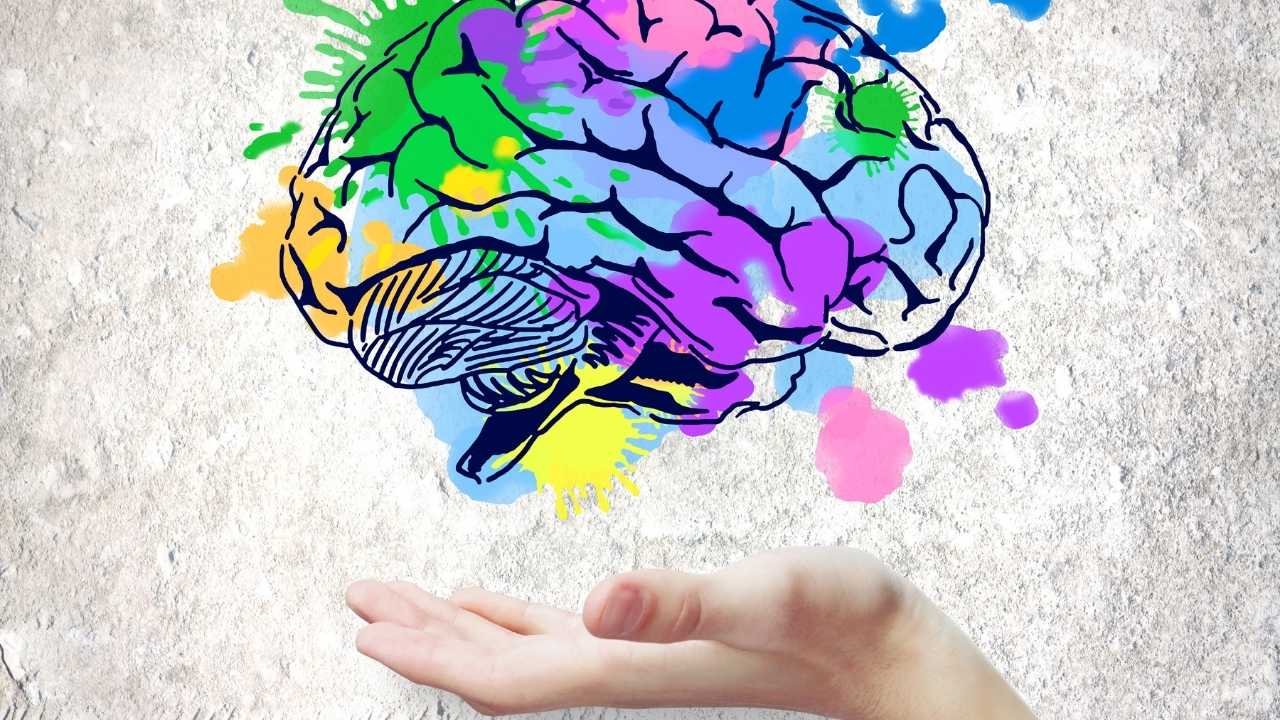
19 Apr Neurodiversity and positivity with rapper J Grange
J Grange is a young man with a bright future who discusses neurodiversity and positivity. A rapper and songwriter rapidly making a name for himself, he hasn’t always found life that easy and is making sure he uses his platform to help others.
At just 19 years old, J Grange can look back on the challenges that life has thrown at him and confidently say he has come a long way.
School exclusions, falling in with the wrong crowd, feeling isolated, and eventually becoming suicidal are all experiences that J has met and overcome.
Yet rather than consign these experiences to the past he acknowledges the part they have played in his life story and works to reach out to other young people who may be struggling.
I caught up with J to listen to his journey and learn more about what had helped him – and how he wants to help others.
“Sometimes when you’re in a dark place you think you’ve been buried, but you’ve actually been planted.”
Christine Caine
Creating a life of positivity
As J says, “the person I am now isn’t the person I was a few years ago.” Instead, he has taken the challenges and difficulties that life presented him with as a teenager and transformed them into a basis to lead a life of positivity.
Diagnosed with ADHD in 2017, J flipped the idea of being labelled on its head and now credits this as a superpower that helps him realise his dreams.
He explains: “I was diagnosed with ADHD in 2017. It was a turning point in my life. Although it’s not that good to be labelled with something I think of it as my superpower. It has made me who I am now.”
The person that he is now? A creative force but also a leader, a shining example to others who puts himself out there to help.
J visits schools and referral units to work with students experiencing difficulties to use his own experience to tell them that life will get better, that they can take control of their narrative, own their life story. He is also involved with the ADHD foundation and is intent on showing youngsters how to focus on the positives in life, not the negatives.
The fact that he himself has faced the same problems these young people have and is now a musician, he is told in feedback, is a big inspiration.
J says: “There’s a lot that needs to change and people like me can drive this.”
Navigating difficulties at school with neurodiversity
“I had a really challenging education, really challenging teenage years. From Year 7 onwards school was a constant pain, feeling misunderstood – not left out but different to everybody else, like I hadn’t got a voice.
“It was like my talents weren’t being shown because I was stuck in a school environment that I was not a fan of and didn’t suit me.”
He recalls ‘exclusion after exclusion’, getting into trouble outside school and getting in with the wrong people, even ending up in court as he struggled to navigate his teenage years.
He says: “You think ‘woah my life could go one of two ways’. Ending up with the horrible stigmas that surround ADHD I could be in prison, excluded from school – the normal rubbish that people assume.
“Or I could use my ADHD as a superpower and do something and think ‘actually you’re going down the wrong path here’. You need to straighten up and think you’ve got great potential, there’s a lot you can do.”
Beating isolation ad depression
Things became so bad for J that he lost hope and became suicidal.
‘I thought why is it me this is happening to? Why are there thousands of people in this school and always the same 5/6/7 people in detention or isolation?” he recalls.
“Isolation is what I was put into at school, but I was feeling it in my head as well. The cycle of isolation and depression. That made me who I am today. It made me realise you’ve got a lot of potential so use it.”
This has shaped the message he now relays to others.
“That’s what I say to anyone else, use your potential, don’t think about the negatives about yourself, or the things you can’t do – or that people and teachers tell you that you can’t do,” he says.
While many young people thrive at school, many others struggle to make their way in an education system that does not meet their needs. This is something J experienced.
He says: “It makes my blood boil when I talk about some of the stuff that teachers have said to me in the past. It is a big thing because it makes you feel how I felt a lot of the time.
“They (teachers) were one of the biggest problems in a way. Then people would come and sit next to me while I was working and say, ‘I wouldn’t touch him with a barge pole’. Saying you’re not going to get your GCSEs, you’ll end up in prison, you’ll be nothing.”
Supporting neurodiversity in education
It is these harsh lessons in life that have informed J’s stance on education and made him determined to try to make a difference.
He says: “I wish I’d stood up a bit more. I can’t believe I let them get away with it and affect my mental state.
“Neurodiverse people fall through the system 99 times out of a 100. Even if they don’t get excluded, they might have felt isolated.
The term neurodiversity refers to ‘a variation in the human brain regarding sociability, learning, attention, mood and other mental functions.’
“Teachers and schools need to do more to find the strengths of people who are neurodiverse. They need to embrace it themselves too and say ‘no, I’m not suffering from this. I am this, I am creative, this is my strength’.
“Education needs hauling into the 21st century. There is a lot of pressure and it breaks my heart that we have amazing teachers who get disillusioned and leave and we are left with teachers that are stressed or stuck in a teaching style.”
Teaching styles can play a huge part in how well children engage in school. Teaching is often set in one style. This is particularly tough for neurodiverse students who would benefit from learning through a different style, such as:
- Kinaesthetic – where they will be part of the action
- Debate – considering different ideas and perspectives
- Visual – seeing through creative means, pictures etc
- Auditory – talking it through
- Analytical – breaking down the data
Neurodiverse people can fall into these categories and their learning needs are not being embraced in a classroom environment.

The power of a good teacher
But there are some great teachers out there who are committed to making a difference. All it takes is one great teacher.
J himself experienced this; he recalls: “Our business teacher said to me: “You’re going to be something when you’re older. You’re going to make something of your life. I went out of that classroom buzzing.
“A lot of teachers don’t realise that if you say one good thing to a student who is having a bad day that will probably last for the rest of the day, or even the week.
“I’d come out of lessons having teachers accuse me of things and think I’m just going to muck around for the rest of the day.”
For now though he believes schools need to look at policies around neurodiverse education needs.
He says: “We need more neurodiverse role models in schools – if you look at Kamala Harris and think ‘look at her opportunities’. It empowers people.
“Imagine having a neurodiverse teacher in school where you can look at them and think ‘wow you can really relate to me’.
“We have a system where people who don’t understand, but think they do, say ‘it’s ok’, ‘do this do that’.”
Neurodiverse role models
Instead, he wants to see neurodiverse people working with neurodiverse teenagers and children to influence a change in perspective.
He says: “Labelling isn’t helpful as it’s not usually positive. Being neurodiverse isn’t a disability, it’s a superpower. We need to influence a change in perspective rather than be put down or boxed.
“Successful people with neurodiverse conditions should be held up.”
He talks about how people like Richard Branson can engage teenagers and young people in a unique way. Offering something different.
He adds: “People who aren’t even neurodiverse want to hear something new in school, they want to hear something different.
“Neurodiverse people struggle because they want to be creative and school is the same – maths, English, geography, history. It’s the same old things.”
Now he thinks schools need to look more closely at helping people with fundamental life skills.
“In schools I think resilience should be taught and a lot more about mental health. Not victimised mental health but positivity,” he says.
“Mental health problems are getting younger, and it’s overlooked. People say they should have got help. It needs to be done before people are at rock bottom. Services are telling people they are not ‘bad enough yet’.”
Seek support early for mental health problems
J knows all too well how bad things can get when your mental health suffers. Feeling isolated he came close to taking his own life. Help came unexpectedly from a homeless man, recently out of prison, who shared his story with J and made him see hope.
By being open about his struggles with his mental health J hopes to encourage others to seek help when they need it, pointing out that even people who seem to have everything can be in a dark place.
From those days of despair, J has turned his life around and is chasing his dreams – while still focusing on mental health and helping others.
Current projects include working on a song around mental health with a major gospel choir, while future plans include creating his own business for people who are neurodiverse.
But most of all he says: “I would like a massive change, forever, with neurodiversity. That’s my biggest dream.”
“Inspiration comes from within yourself. One has to be positive. When you’re positive, good things happen.”
Deep Roy
Focus on the future
And his top piece of advice for any young people struggling right now at school?
“Focus – there’s always going to be distractions. Realise there is always light at the end of the tunnel and there’ll always be someone there who understands you,” he says.
“Conquer the world, embrace who you are, you are the same as everyone else, everyone’s equal. You’ve got lots of opportunities, even though it might not seem like it sometimes. Keep you head on, focus and be whatever you want to be. Have ambitions and goals. Work hard and play hard. Focus on the future not the present and past.”
And J is certainly someone who has a bright future, find out more about him and follow his journey at jgrangeofficial.com.
Choose the life you want to lead
At times we all need support to realise we can have a wonderful future. We might just need a helping hand, but that support is there. It is available.
If you need to reach out the Back on Track Teens community is here to help. Find out how others have found empowerment and support.
Believe in yourself, believe in your right to an education that inspires you and know there is always a better day ahead. You are never alone.


No Comments